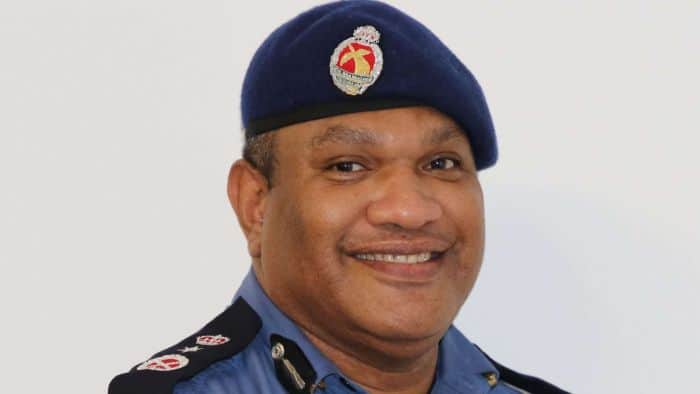PNG: Shocking. The young Papua New Guinea cop was lost for words. On his first raid with his unit, the unfolding scene of disgust hit him hard in his guts and reverberated through his body.
“This is shocking,” he muttered as he helped free the prisoners from their bonds and walked back to his patrol vehicle. We cannot identify him to protect his identity and his comrades.
Cops deal with violence every day. How it affects them physically, mentally and psychologically, we don’t know.
But by his admission, this is something he will live with for the rest of his life.
Wednesday, he was one of several policemen who rescued two women from Chuave, Chimbu Province, in Port Moresby’s outer settlement of Moitaka Ridge at 9-Mile.
They were beaten to pulp, abused with hot iron rods, drifting in and out of consciousness, begging for mercy.
An all too familiar scene in the country, where sorcery-related violence against citizens is on the rise, despite laws passed in the PNG Parliament to prosecute those that carry out such vile acts.
The women were taken away by St John Ambulance after enduring a horrific 24 hours of torture by clansmen, after the death of a child last week.
When the father of the child fell ill this week and was admitted to the Port Moresby General Hospital, suspicions of sorcery were fueled by the mere presence of the women, who live in the same home.
The duo was tortured and assaulted for allegedly killing the child through sorcery.
The accusers were their own family who tortured them before police were called in by a person who became suspicious after hearing the cries of the old ladies.
PNG Police Commissioner David Manning was informed of the rescue by police who stopped the torture of the women by their family members.
“I’m tired of the continued attack on women, especially in relation to sorcery accusations,” he said.
“Why must we continue to save women who have the right to be free from such heinous crimes?”
“It sickens me that this time, their own family tortured the women over the death of a child and the child’s father falling ill.”
According to neighbours, a child had died last Thursday, on Monday morning, the father became ill suddenly and because of the close proximity of the death and illness, other members of the family became suspicious of the two women.
Police at the scene said: “When we arrived, both women were bound by ropes, both were bleeding heavily from being assaulted, the assaults and torture continued when the family heard the father of the home was now 50/50 at the hospital.
“Someone called police operations and described the location of the torture and assault and we are tasked to respond.”
The women kept quiet when approached by the Post-Courier with their own family watching on.
A woman who was at the scene commented and said that the two were now homeless because their family would not allow them back into the community.
The women were treated at the scene by the St John Ambulance team and taken to the hospital.
Manning said: “While I know many have their beliefs of sorcery, there has to be proof to such accusations which have to be proven in the court of law or be shown to police officers when they investigate.
“In a century where there are new discoveries of medical conditions, any condition can be attributed to someone falling ill suddenly or dying suddenly, this is where if family are aggrieved, they can lay a complaint to police who can order a post-mortem on the deceased.”
“If foul play is suspected then the suspects can be identified and dealt with by police, if it is a medical condition one does not need to be tortured or assaulted for a medical condition.” Commissioner Manning said.
Women, children, elderly men and women, and those living with disabilities are always picked on by men, adult men who tend to lead the crusade of accusation and court where they decide on the form of torture he added.
We have strict laws in place for such torture and assaults related to sorcery he said.
“People who suspect sorcery must report the matter to police who will investigate and find out the truth about the person’s death,” he said.
